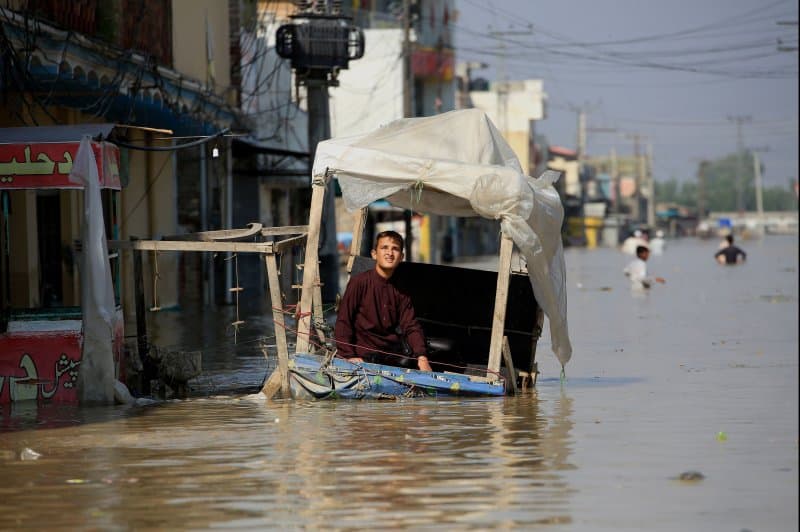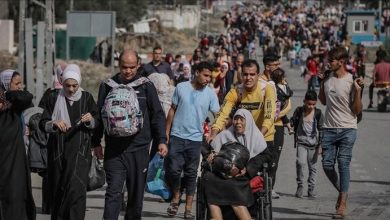Death toll from Pakistan flooding passes 1,100

The death toll from flooding in Pakistan passed 1,100 on Monday as officials said that one-third of the country is underwater from an “unrelenting cycle of monsoons.”
Pakistan’s National Disaster Management Authority reported Monday that 1,136 have been recorded across the country since flash flooding and heavy rains started on June 14, with the most deaths — 402 — recorded in the southern province of Sindh.
Officials said that more than 1,634 people have been reported injured since the flooding began after 59 new injuries were reported Monday. More than 33 million people have been affected by the flooding.
Flash flooding has destroyed roads, at least five bridges and nearly 60,000 homes, mostly in Sindh, in the last 24 hours, officials said. More than a million houses, 170 stores and 162 bridges have been destroyed since June.
Muhammad Ali Khan, the response director for the NDMA, said in the report that mainly dry weather is expected over most of the country in the next 24 hours but isolated thunderstorms could occur over the upper catchments of all major rivers.
In an emergency bulletin, the NDMA said that a “very high” level of flooding “is likely to continue” in the Kabul and Indus rivers.
Authorities have advised people living along the banks of the rivers to evacuate from low-lying and flood-prone areas to “ensure availability of shelters, food and medicines in those shelter camps.” Farmers and cattle herders have also been advised to move cattle away from such areas.
Pakistani Senator Sherry Rehman, who is the country’s top climate official, said on Twitter on Monday that “one-third of Pakistan is underwater.”
“Frankly, no one has seen this kind of downpour and flooding before, and no one country can cope alone with the multiple, cascading effects of extreme weather, climate events,” she said.
“Pakistan is going thru its longest, hardest, most unrelenting cycle of monsoons along with river flooding now from the north. The needs gap on the ground is worryingly high. We need the rains to stop. Need national unity and international support in this apocalyptic flood.”
General Qamar Javed Bajwa, chief of army staff, said in a statement Saturday that he has directed the military to utilize “all available resources” to help civil administration with rescue, relief and rehabilitation efforts.
“The safety and wellbeing of our country men comes first and we won’t rest until each one of flood affected is not only reached but rehabilitated, no matter how much effort is required,” he said.
“The people of Pakistan are our priority and we won’t spare any effort to assist them in this difficult time.”





